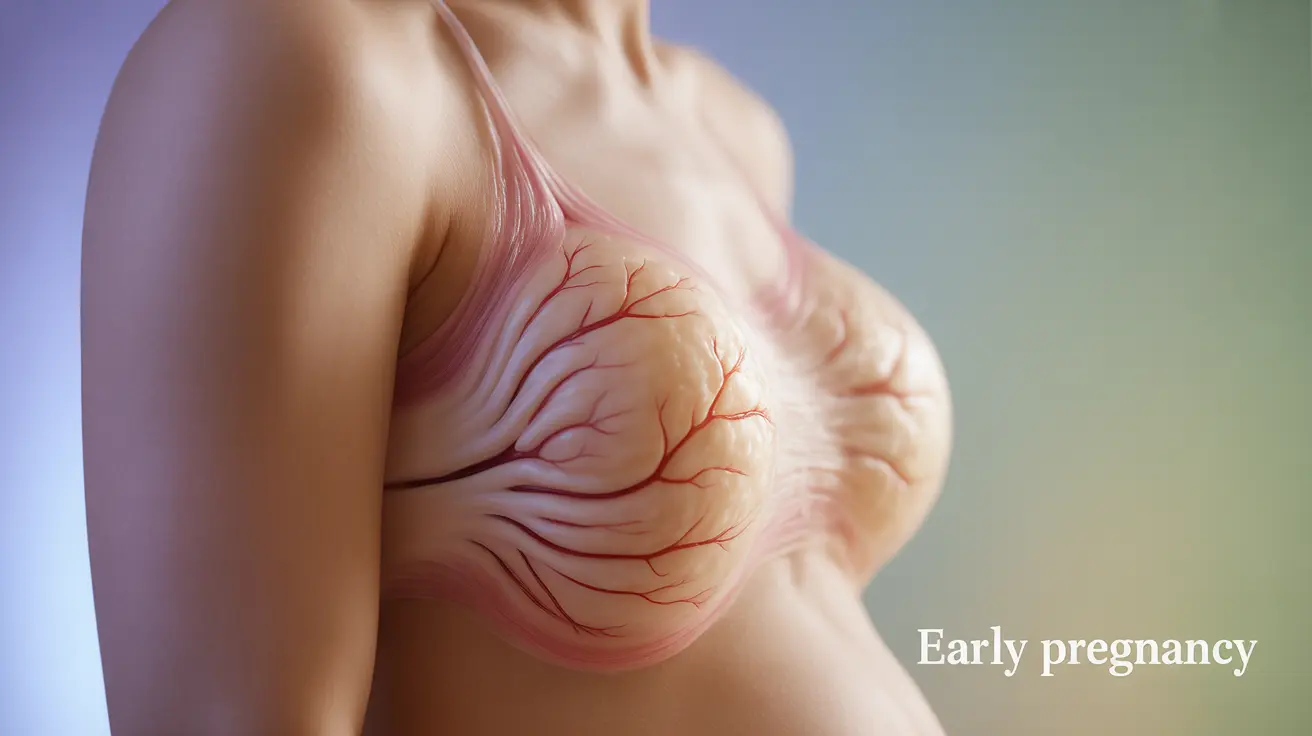Breast tenderness is often one of the earliest signs of pregnancy, occurring even before a missed period. Understanding when this symptom typically begins and what causes it can help women better recognize early pregnancy signs and manage any discomfort they experience. This comprehensive guide explores the timeline, causes, and management of pregnancy-related breast tenderness.
The Timeline of Breast Tenderness in Early Pregnancy
Breast tenderness typically begins around 4-6 weeks after conception, making it one of the first noticeable pregnancy symptoms. For many women, this sensitivity can start as early as 1-2 weeks after conception, coinciding with the time of implantation. The timing and intensity of breast tenderness can vary significantly among individuals.
Understanding the Hormonal Changes
The primary drivers of breast tenderness during pregnancy are hormonal fluctuations, particularly increases in estrogen and progesterone. These hormones trigger several changes in breast tissue:
- Growth of milk ducts
- Increased blood flow to the breasts
- Development of milk-producing cells
- Enhanced fat storage in breast tissue
These natural changes prepare the breasts for milk production and breastfeeding after delivery, but they can cause considerable discomfort during early pregnancy.
Common Symptoms and Characteristics
Pregnancy-related breast tenderness often presents with specific symptoms:
- Heightened sensitivity to touch
- General soreness or aching
- Feeling of heaviness
- Tingling sensations
- Darkening of the areolas
- Visible veins on the breast surface
Duration of Symptoms
Most women experience breast tenderness throughout the first trimester, with symptoms typically peaking around weeks 8-10. For some, the discomfort may decrease during the second trimester as their bodies adjust to hormonal changes. However, breast changes continue throughout pregnancy as the body prepares for lactation.
Distinguishing Pregnancy from Other Causes
While breast tenderness can be a strong pregnancy indicator, other conditions may cause similar symptoms:
- Premenstrual syndrome (PMS)
- Hormonal contraception
- Hormonal imbalances
- Fibrocystic breast changes
- Infection or injury
Managing Breast Tenderness During Pregnancy
Several strategies can help alleviate breast discomfort during pregnancy:
- Wearing a supportive, well-fitted bra
- Using cotton bras to reduce skin irritation
- Avoiding underwire bras if they cause discomfort
- Applying cool compresses to reduce inflammation
- Wearing loose-fitting clothing
- Making dietary adjustments to reduce fluid retention
When to Seek Medical Attention
While breast tenderness is normal during pregnancy, certain symptoms warrant medical evaluation:
- Severe or persistent pain
- Lumps or unusual breast changes
- Signs of infection (redness, warmth, fever)
- Discharge other than colostrum
- One-sided breast pain
Frequently Asked Questions
What are the earliest signs of breast tenderness in pregnancy, and how does it differ from PMS symptoms? Pregnancy-related breast tenderness typically begins 4-6 weeks after conception and tends to be more persistent than PMS-related discomfort. While PMS breast pain usually resolves with menstruation, pregnancy-related tenderness continues and may intensify.
How do hormonal changes during pregnancy cause breast soreness, and what role do estrogen and progesterone play? Estrogen and progesterone levels rise significantly during pregnancy, causing increased blood flow, growth of milk ducts, and tissue development in the breasts. These hormones prepare the breasts for milk production but can cause tenderness and sensitivity.
What are the typical symptoms of breast pain during pregnancy, and how long can they last? Symptoms include general soreness, heightened sensitivity, heaviness, and tingling sensations. These typically last throughout the first trimester, often peaking around weeks 8-10, with possible improvement in the second trimester.
Is breast tenderness a reliable indicator of pregnancy, or can other factors cause similar symptoms? While breast tenderness can indicate pregnancy, it's not definitive as other factors like PMS, hormonal changes, and certain medications can cause similar symptoms. A pregnancy test and medical consultation are necessary for confirmation.
How can women manage or alleviate breast soreness during pregnancy, and when should they consult a healthcare provider? Women can manage symptoms through proper support garments, cool compresses, and comfortable clothing. Medical attention is needed if there's severe pain, unusual lumps, signs of infection, or concerning changes in breast appearance.




